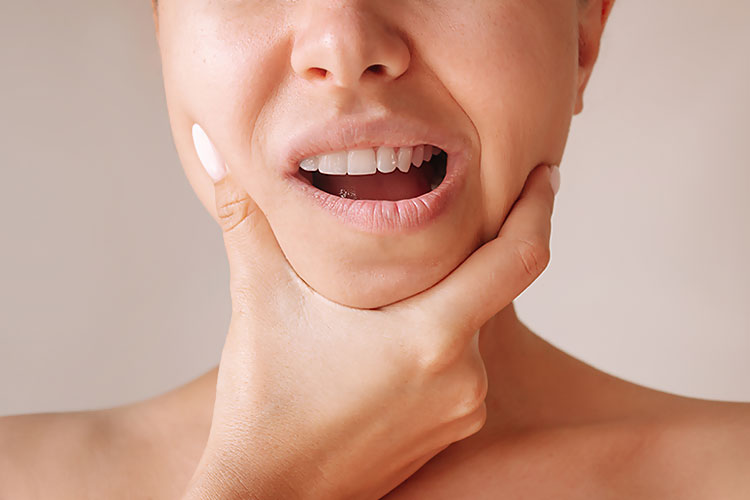- Address
- 26 North Park Boulevard
- Glen Ellyn, IL 60137
- Get Directions
- Phone
- (630) 858-8800
- SmileGlenEllyn@gmail.com

Most patients are completely unaware that they might be grinding or clenching teeth or bruxism while sleeping, inadvertently setting themselves up for dental problems in the near to middle future. For instance, many people sleep on their sides or stomach, placing their teeth into positions that they would not ordinarily be in during the day. They also tend to bite down much harder when their conscious mind is largely inactive and unable to control bite force.
Nocturnal tooth grinders often place between 300% and 1,000% of daytime biting pressure on their teeth when clenching or grinding teeth at night. Grinding and clenching, known collectively as “bruxism,” occur in brief but intense bursts while sleeping, usually during the delta phase of sleep. Over time, the hard, protective enamel coating of the teeth wears off, and the tooth interior starts to fray and fracture.
Worn tooth surfaces due to bruxism are prone to decay, as bacteria can easily penetrate the soft dentin as it is exposed by destruction of the enamel. Many of these teeth fracture, especially if silver mercury fillings are present. Some teeth develop root fractures requiring root canals or outright extraction. Gum recession, tooth mobility, damage to the jaw joint (TMJ), and bone loss can also result from this type of wear.
It is estimated that between 25% and 50% of people cause damage to their teeth through nocturnal grinding. There are several types of bite guards that can be used to prevent damage from bruxism. Each must be custom fitted and custom made for the individual patient. Depending on the dentist’s assessment of the situation and the patient’s needs, they can be hard or soft, thick or thin, and fitted to either the upper or lower teeth.

Some additional facts about bruxism include:
Dentist may prescribe a variety of oral appliances to both reduce the discomfort and destruction of teeth clenching and bruxism. There are hard, hard-soft, and soft nightguards that can be prescribed and individually fitted by the dentist. These can be worn on either the upper or lower teeth. Other varieties are NTI-TSS device (short for nociceptive trigeminal inhibition tension suppression system), or orthodontics, or complex restorative dentistry.
Call us at (630) 326-5453 or request an appointment today.
We’ve filled our website with information about our doctors, our team, and our services including family dentistry we offer, location, maps and business hours. Please feel free to take a look around to learn more about what we do and how we can help keep your smile healthy and stunning for a lifetime. We want you to feel confident that when you choose us, you’re choosing to receive the best dental care available.